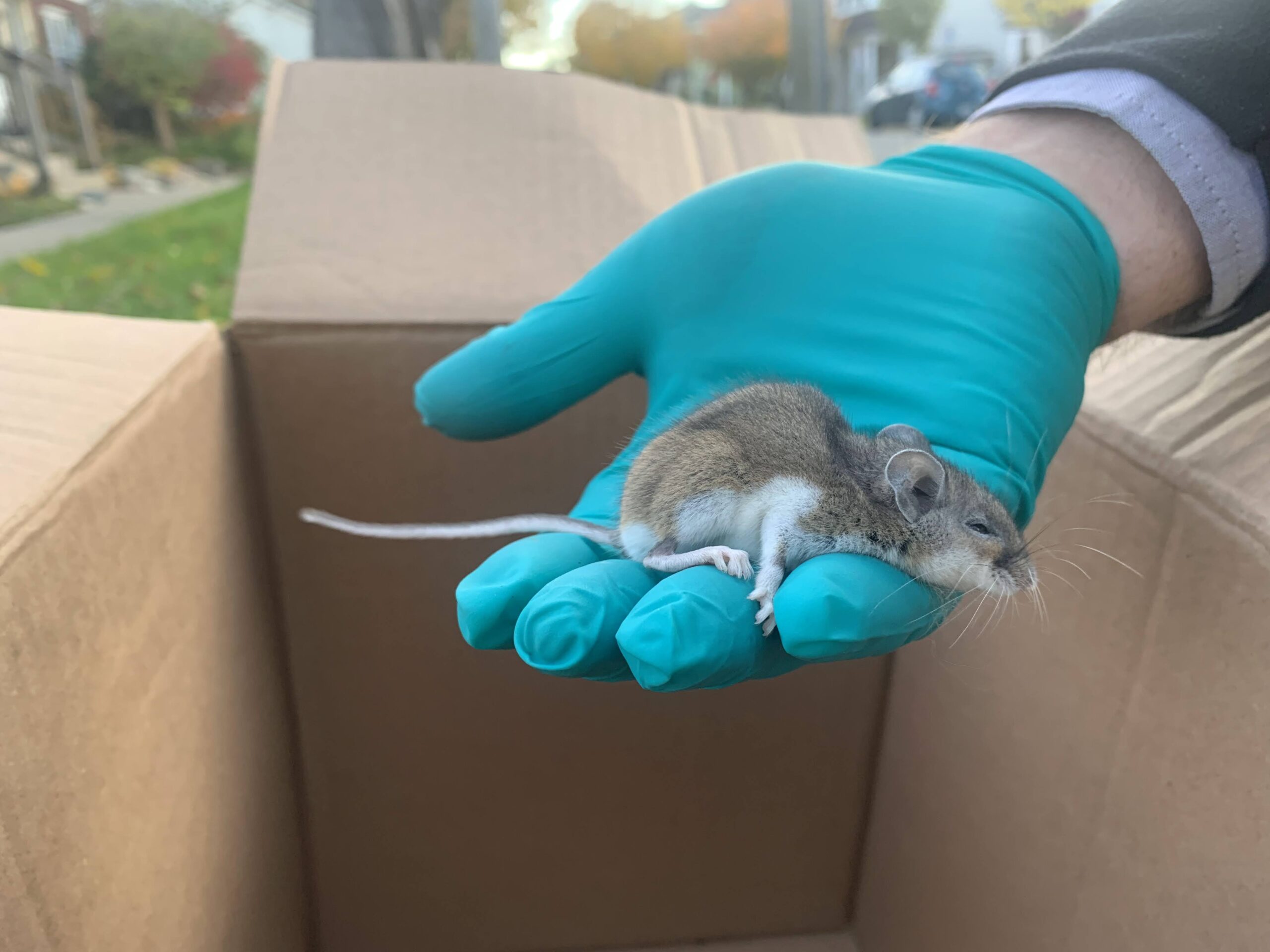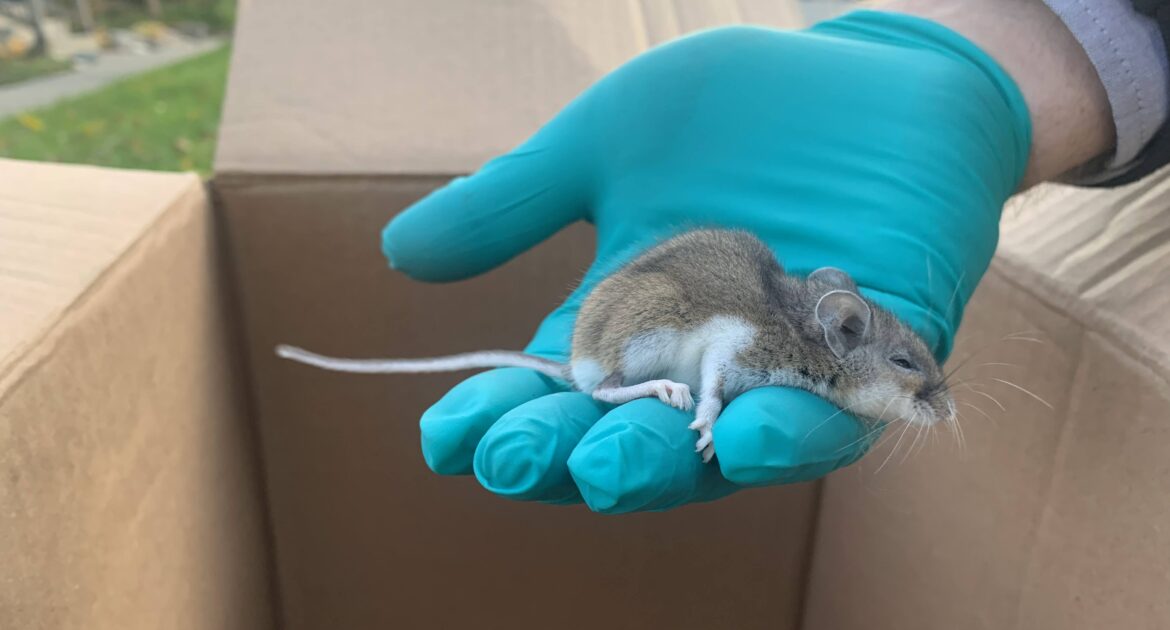Rabies is a viral infection that affects the nervous system and is usually fatal. It is a zoonotic disease, meaning that it can spread from animals to humans. All mammals have the potential to contract rabies. Since the laws of many communities require pets such as cats and dogs to receive rabies vaccinations on a regular basis, the risk is often greatest from wild animals, which is why it is important to learn to recognize rabies symptoms.
However, not all animals are equally susceptible to rabies. Mice do not carry it very often, but they can expose you and your family to other diseases in Hamilton.
What Are Rabies Symptoms?
Rabies affects the nervous system, so infected animals may exhibit neurological symptoms, such as seizures and paralysis. The virus can affect their motor ability, so you may see them staggering. They have difficulty swallowing and may drool excessively, which causes the characteristic foaming at the mouth.
A rabid animal may exhibit either extreme fearfulness or extreme aggression. Wild animals infected with rabies may start exhibiting unusual behaviours for their species. For example, nocturnal animals may be active during the day. A wild animal infected with rabies may lose its fear of humans, and be more likely to bite. The disease spreads to human beings when an animal’s saliva gets into the bloodstream. This can happen indirectly through a pre-existing cut in the skin but usually occurs because of a bite from the animal.
How Common Is Rabies Among Mice?
Like all other mammals, mice have the potential to carry rabies. They also have the ability to bite humans, so in theory, at least, it is possible that a human could contract rabies from a mouse. However, it does not appear that rabies is very common among the mouse population. It is very rare for mice to be found infected with rabies when tested. Even on rare occasions when a mouse is infected, there has never been a confirmed report of a mouse transmitting rabies to a human.
What Other Diseases Do Mice Carry?
Mice are more likely to expose you and your family to other diseases that can also be serious:
- Hantavirus: Hantavirus spreads through a mouse’s urine or feces when humans breathe aerosolized particles containing the virus. It causes acute respiratory illness. Unlike rabies, there is no vaccine for hantavirus. Infected individuals may be asymptomatic for two to four weeks. Hantavirus is not as deadly as rabies, but it typically requires hospitalization and artificial ventilation.
- Rat-Bite Fever: Rat-bite fever is caused by bacteria found in the rodents’ excrement or saliva. Infected rodents can spread it to humans by biting or scratching them. It may also spread passively through contact with a contaminated surface; e.g., you touch a counter where a rat has been and then rub your eyes. After a few days following contact, you may experience symptoms such as muscle pain, skin rash, and fever. Rat-bite fever can be serious enough to require hospitalization.
- Salmonella: Salmonella is a bacterial strain that lives in the digestive tract. If the mice get into your food supply, they can contaminate it with Salmonella through their excrement. Salmonella infection causes gastrointestinal complaints, such as abdominal cramps, nausea, vomiting, diarrhea, and intestinal bleeding. While most people recover from salmonella infection, it can cause serious illness and potential complications. Furthermore, pets can also contract salmonella if mice contaminate their food. Dogs and cats infected with Salmonella are less likely to survive.
Wildlife Control in Hamilton From Skedaddle
While mice can spread diseases to humans by biting them, infection more often takes place passively through contact with their excrement. Therefore, it is important to have a professional not only to remove the mice but clean up after them. Skedaddle removes mice humanely, and safely cleans and decontaminates the areas where they have been. Protect your family by calling us today.





